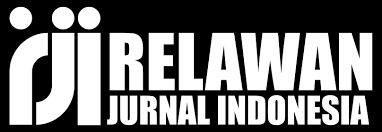Pengaruh Promosi Dan Brand Image Terhadap Kepuasan Konsumen Pada Midori Japanese Restaurant Bintaro
DOI:
https://doi.org/10.61722/jiem.v3i5.4799Keywords:
Promotion, Brand Image, Consumer SatisfactionAbstract
This study aims to determine the effect of promotion and brand image on consumer satisfaction at Midori Japanese Restaurant Bintaro. The method used is the quantitative associative method. The population in this study were consumers of Midori Japanese Restaurant Bintaro with a total of 36,797 people in 2024. The sampling technique used was accidental sampling, with the Slovin formula technique, the research sample was 100 respondents. The data analysis method used in the study includes instrument testing consisting of validity testing, reliability testing, classical assumption testing consisting of normality testing, multicollinearity testing, heteroscedasticity and autocorrelation testing, multiple linear regression testing, correlation coefficients, hypothesis testing consisting of partial t-tests and simultaneous f-tests, and determination coefficient tests. From the results of this study, it is concluded that promotion has a positive and significant effect on consumer satisfaction with a T_count value> T_table (12.440> 1.985) and is reinforced with a significance value of 0.000 <0.05. Brand Image has a positive and significant influence on consumer satisfaction with a value of T_count > T_table (16.098 > 1.985) and is reinforced with a significance value of 0.000 < 0.05. Promotion and Brand Image have a positive and significant influence on consumer satisfaction with a value of F_count > F_table (134.624 > 3.090) and is reinforced with a significance value of 0.000 < 0.05 and the multiple linear regression equation is Y = 3.193 + 0.201 X1 + 0.731 X2 + α. The R-square value (determination coefficient) of 0.735 can be concluded that the promotion variables (X1) and brand image (X2) together have a contribution to the influence of the consumer satisfaction variable (Y) of 73.5% while the rest (100% -73.5%) is 26.5% influenced by other factors or variables not studied.
References
Aaker, David A. dan Alexander L. Biel. (2020). Brand equity And adversiting: Adversiting Role In Building Strong Brand. Lawrence Erlbaum Associates. Inc, Hillsdale.
Abdullah, T., & Tantri, F. (2019). Manajemen Pemasaran (1st ed.). Depok: PT.Rajagrafindo Persada.
Aditama, R. A. (2020). Pengantar Manajemen: Teori dan Aplikasi. AE Publishing.
Afandi. (2018). Manajemen Sumber Daya Manusia (Teori, Konsep dan Indikator).
Alfabeta, CV. Nusa Media. Yogyakarta.
Alma, Buchari, 2017, Manajemen Pemasaran dan Pemasaran Jasa, Bandung: Alfabeta.
Amirullah. (2015). Pengantar Manajemen. Jakarta: Mitra Wacana Media.
Anang Firmansyah. 2019. Pemasaran produk dan merek, cetakan pertama, penerbit Qiara Media, Jawa timur.
Andi Supangat, th, Statistika dalam Kajian Deskriptif, Inferensi, dan Nonparametik, Bandung: Kencana penada media group.
Armstrong, G., & Kotler, P. (2017). Principles of Marketing. 17th red. New York.
Assauri, S. (2018). Manajemen Pemasaran (Dasar, Konsep & Strategi). Depok: PT Raja Grafindo Persada.
Bakry, Umar Suryadi. 2016. Metode Penelitian Hubungan Internasional. Yogyakarta: Pustaka Pelajar.
Buchari Alma., 2016 Manajemen Pemasaran dan Pemasaran Jasa. Bandung. Alfabeta.
Buchari, A. (2017), Manajemen Pemasaran dan Pemasaran Jasa. Bandung: Alfabeta
Daryanto dan Setyobudi, I. (2014). Konsumen dan Pelayanan Prima. Yogyakarta: Gava Media.
Donni Priansa. 2017. Manajemen Pelayanan Prima. Bandung: Alfabeta.
Fandi, Tjiptono. 2014. Service, Quality & Satisfaction. Edisi 3. Yogyakarta: Penerbit Andi.
Fandy Tjiptono dan Gregorius Chandra. 2016. Service, Quality & Satisfaction, Edisi 4, ANDI, Yogyakarta.
Fandy Tjiptono, Pemasaran Jasa, Penerbit Banyumedia Publishing, Jawa Timur 2017.
Fandy Tjiptono. (2012). Strategi Pemasaran, ed. 3, Yogyakarta, Andi.
Fandy Tjiptono. (2015). Strategi Pemasaran, Edisi 4, Andi Offset, Yogyakarta
Fandy Tjiptono. 2017. Pemasaran Jasa. CV Andi Offset. Yogyakarta
Fandy, Tjiptono. 2016. Service, Quality & Satisfaction. Yogyakarta : Andi.
Firmansyah, A. (2018). Pengantar Manajemen. Edisi ke-1. Yogyakarta: Deepublish.
Firmansyah, A. dan Budi W. (2018) Mahardika, Pengantar Manajemen, Yogyakarta: DEEPUBLISH.
Ghozali, Imam. 2018. Aplikasi Analisis Multivariate dengan Program IBM SPSS 25. Badan Penerbit Universitas Diponegoro: Semarang
Hasibuan, Malayu SP. (2018). Manajemen Sumber Daya Manusia. Edisi Revisi. Jakarta: PT. Bumi Aksara.
Hasibuan, Malayu. (2016). Manajemen Sumber Daya Manusia. Jakarta: Penerbit Bumi Aksara.
Indrasari, M. (2019). Pemasaran dan Kepuasan Pelanggan. Surabaya: Unitomo
Indrasari, Meithiana. (2019). Pemasaran Dan Kepuasan Pelanggan. Surabaya : Unitomo Press.
Indrawan, R., & Yaniawati, P. (2016). METODOLOGI PENELITIAN Kuantitatif, Kualitatif, dan Campuran untuk Manajemen, Pembangunan, dan Pendidikan (Revisi) (N. F. Atif Ed.). Bandung: PT Refika Aditama.
Kotler dan Keller. (2017). Manajemen Pemasaran, Edisi 12, Jilid 1, PT.Indeks,. Jakarta. In e – Jurnal Riset Manajemen.
Kotler, P dan Amstrong. (2018). Prinsip-prinsip Marketing Edisi Ke Tujuh. Penerbit Salemba Empat. Jakarta.
Kotler, P. and Keller, Kevin L. 2016: Marketing Management, 15th Edition New Jersey: Pearson Pretice Hall, Inc.
Kotler, Philip and Gary Amstrong. (2016). Prinsip-prinsip Pemasaran. Edii13. Jilid 1. Jakarta:Erlangga
Kotler, Philip and Lane Keller. (2017). Marketing Manajement, 15th Edition New Jersey: Pearson Pretice Hall, Inc
Kotler, Philip dan Gary Armstrong. (2016). Dasar-Dasar Pemasaran. Jilid 1. Edisi Ke 9. Jakarta: Erlangga. Kotler, Philip., dan Gary Armstrong., (2019), Principles of Marketing, 14th Ed,Prentice Hall, Jakarta.
Downloads
Published
Issue
Section
License
Copyright (c) 2025 JURNAL ILMIAH EKONOMI DAN MANAJEMEN

This work is licensed under a Creative Commons Attribution-ShareAlike 4.0 International License.












